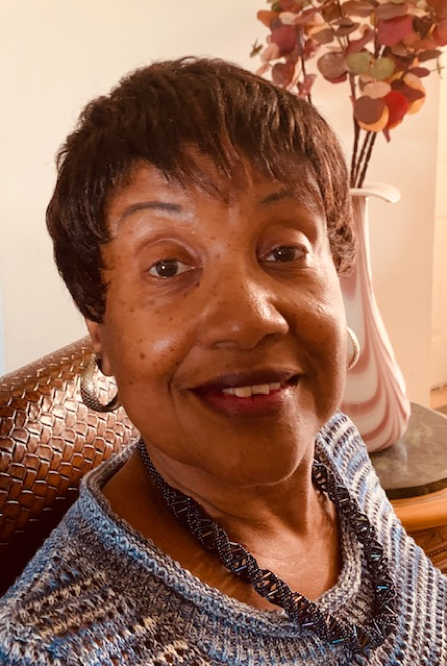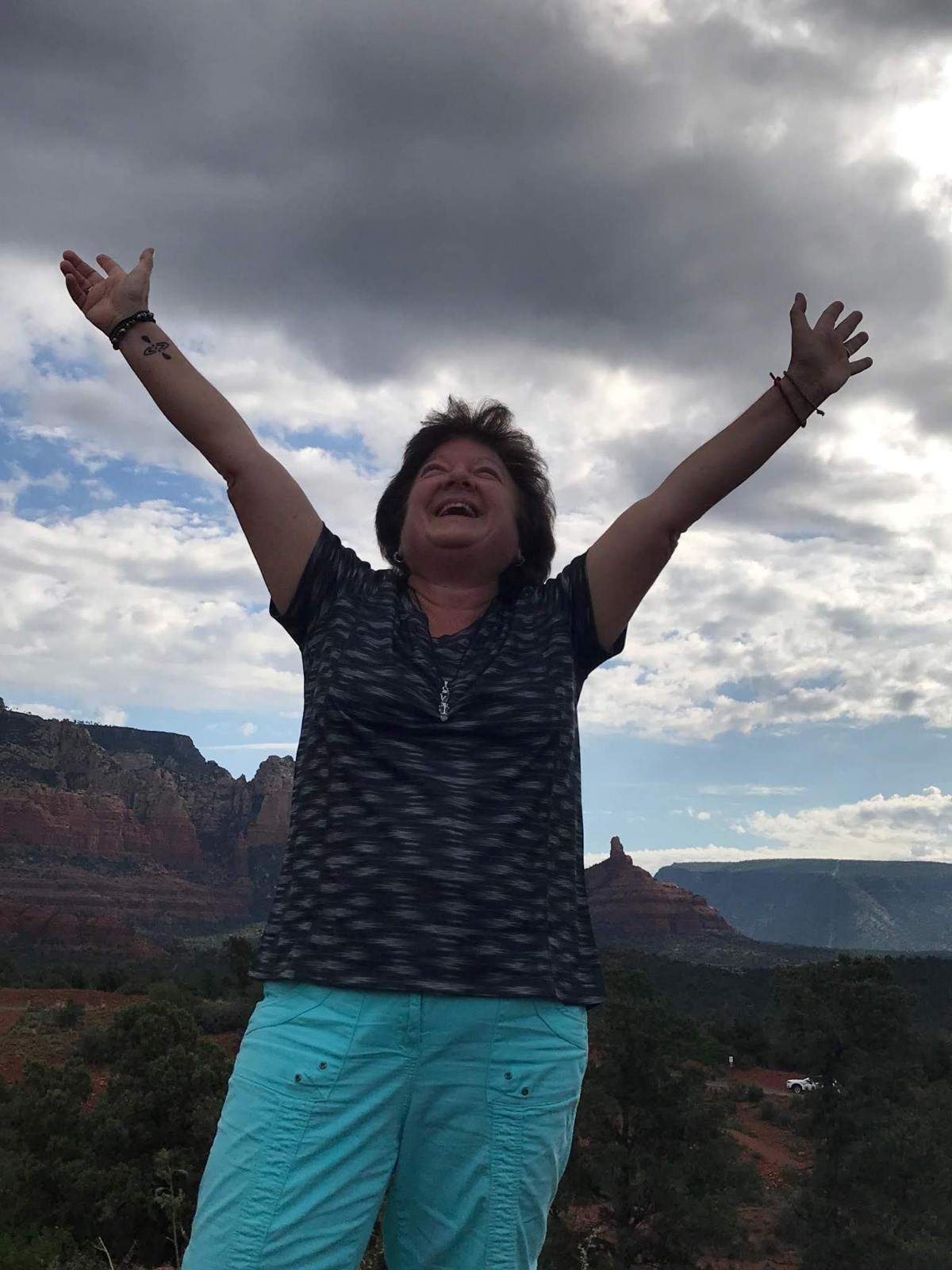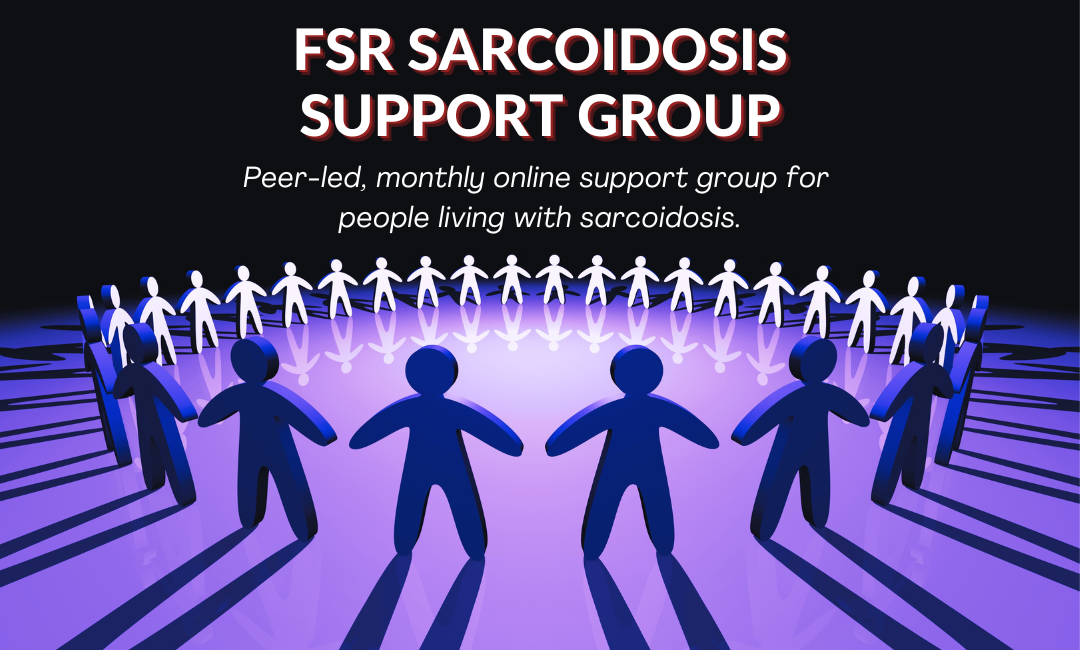FSR Sarcoidosis Support Group
In response to feedback received in 2021 and a growing need to support patients where they are, FSR has launched an online peer-led support group for people living with sarcoidosis. While 2025 will bring additional, more localized community group programming through the FSR Global Sarcoidosis Clinic Alliance, we will continue to address the emotional needs of sarcoidosis patients everywhere through these virtual groups. Each month, FSR hosts two groups and participants can choose to participate in one of the two sessions offered.
What is a support group?
Talking with and learning from others who have had similar experiences can help patients deal with sarcoidosis. This support group is peer-led, meaning that it is facilitated by two people living with sarcoidosis. We are grateful that we have experienced FSR Patient Volunteers who will be leading these groups. Please read more about our facilitators below.
Purpose of the FSR Sarcoidosis Support Group
These support groups are designed to provide a safe and supportive space for individuals who are living with sarcoidosis. If you are newly diagnosed with sarcoidosis we encourage you to check out FSR’s Patient Navigator Program where you will find one-on-one peer support.
In this group, members respectfully listen to each other, share thoughts, feelings, provide validation, and offer encouragement to fellow group participants living with sarcoidosis. Facilitators lead open discussions for members to support the complex variety of concerns related to the emotional toll of managing this disease.
How to register
Please only register once for the full block of sessions.
Sessions have a limited space. Registering does NOT guarantee entry to a session. Sessions will be filled on a first come, first serve basis. Attendees will be messaged upon entering the Zoom waiting room if the session is at capacity. Facilitators may decide to increase capacity during sessions if they feel they are able to support a larger group.
While some facilitators have clinical mental health credentials, they are working as peers in their support group leader roles. Neither facilitator will dispense with clinical mental health advice. No information discussed through this support group is meant to supplant the advice of your individual mental health and/or medical providers.
Meeting sessions are as follows:
Third Thursday of every month | 5:00-6:15 PM CST every month.
Upcoming meetings in 2025:
- 1/16
- 2/20
- 3/20
- 4/17
- 5/15
- 6/19
- 7/17
- 8/21
- 9/18
- 10/16
- 11/20
- 12/18
Click on the button below to register for the FIRST HALF (Mar 20 – June 19) 2025 sessions:
2025 RegistrationClick on the button below to register for the SECOND HALF (July 17 – Dec. 18) 2025 sessions:
2025 Registration
FSR Support Group Ground Rules
Note: All attendees must agree to and abide by the following group guidelines.
- Everything discussed in sessions is confidential. What is said in the group, stays in the group. This includes not bringing up topics and experiences discussed in group with individuals outside of the group context. (Example: Laura and Todd go to the same group. Laura shares information about her struggles with depression during support group. Later, Todd and Laura are in a virtual social or networking event, and Todd, meaning to be thoughtful, asks Laura if her depression is getting better. Todd does not mean to break Laura’s confidentiality; he is genuinely interested in how Laura is doing. But Laura finds this upsetting, and now feels everyone in the unrelated virtual event knows something about her she did not want to disclose.)
- We do not discuss group members who are not present.
- Everyone’s experience is valid. This is a safe and supportive environment for sharing your experiences dealing with or supporting someone dealing with sarcoidosis.
- Share feelings but not advice.
- Accept one another without judgments.
- This is a non-judgmental and open space, any negative remarks around religion, gender, sex, sexual orientation, disability, age or any other aspect of a person’s identify is not acceptable and will result in immediate removal from the group.
- Listen to each other. Do not cut one another off.
- Speaking is not required. If you do not feel like sharing, it is okay not to share. If others in the group choose not to share, we do not call them out or request they share during group.
- Silence phones, and other notifications during session.
- We keep our cameras on during discussions: Unless there are extenuating circumstances, we ask all participants to keep their cameras on during group discussions, even if they are not sharing.
- If something said is uncomfortable or triggering, it is okay to chat directly with one of the facilitators and excuse yourself from the session or having your camera on.
- We keep ourselves muted unless speaking.
- The facilitators will provide guidance for equitable distribution of speaking time by either the hand raising function, or other methods.
- We are mindful of our time speaking. We understand everyone needs an opportunity to speak during group. Facilitators will try to make additional time at the end of group session if folks were not able to share as much as they needed due to time limits.
- Have a positive attitude.
- Be supportive and encouraging to each other.
- Be on time. Each session has limited capacity. Even if you are registered, attending late may mean you are not able to join the session. Facilitators will take down the names of those in the waiting room who did not gain entry and prioritize attendance at the following session.
- We use appropriate and respectful language. We do not use terms or swear words that some members may find offensive.
- We use this group for its intended purpose. We do not advertise businesses, organizations, or engage in self-promotion.
Breaking these rules may result in permanent dismissal from the FSR Support Group Program.
Additional Notes:
- Facilitators may interject participants due to time. This is not personal, but rather the facilitators’ job to ensure everyone has equal opportunity to speak and share. There may be time at the end to go back into what you need/want to share after everyone has had a turn.
- Facilitators may mute your microphone if you are not speaking and/or there is background noise detected.
- Even though our goal is to support everyone attending the group, this group may or may not meet your needs. Before deciding whether this group is for you or not for you, we hope you attend at least two meetings.
- While our facilitators have clinical mental health and healthcare credentials, they are working as peers in their support group leader roles. Neither facilitator will dispense with clinical mental health or medical advice. No information discussed through this support group is meant to supplant the advice of your individual mental health and/or medical providers.
About our facilitators

Theresa was diagnosed with Pulmonary Sarcoidosis in 1979, which has also spread to her eyes. Theresa completed a fulfilling career as a Teacher, School Counselor, Trainer, School Administrator, and now, in retirement, is a part-time Psychotherapist. In the Washington, DC area, she was a co-founder of a Sarcoid Support Group and co-led this group for several years. Theresa is a member of the FSR Patient Advisory Committee and hopes to be a resource for other Sarcoidosis patients, family members, medical staff, researchers and the FSR for support and educational advancement of a cure for Sarcoidosis and improved treatment. Because she has managed the effects of Sarcoidosis for over 40 years, Thresa believes that she can share her experiences with newly diagnosed patients as well as those who are experiencing daily struggles.

Susan is a certified mindfulness meditation instructor through the McLean Meditation Institute. Susan is a sarcoidosis warrior and has had a life-long interest in the mind-body connection, specifically as to how the mind affects the body in prevention of disease and in its recovery from illness. She is a retired registered nurse, and has worked in the health care setting in various roles for over 40 years. Susan utilizes meditation and mindfulness practices in her own daily life. As your meditation and mindfulness coach, she will teach you techniques that will help you in your personal journey to health. Susan joined FSR as a Patient Advocate in 2020, and a Patient Navigator in 2021. In 2021, she hosted the FSR Virtual Wellness Mindfulness and Meditation Series.

